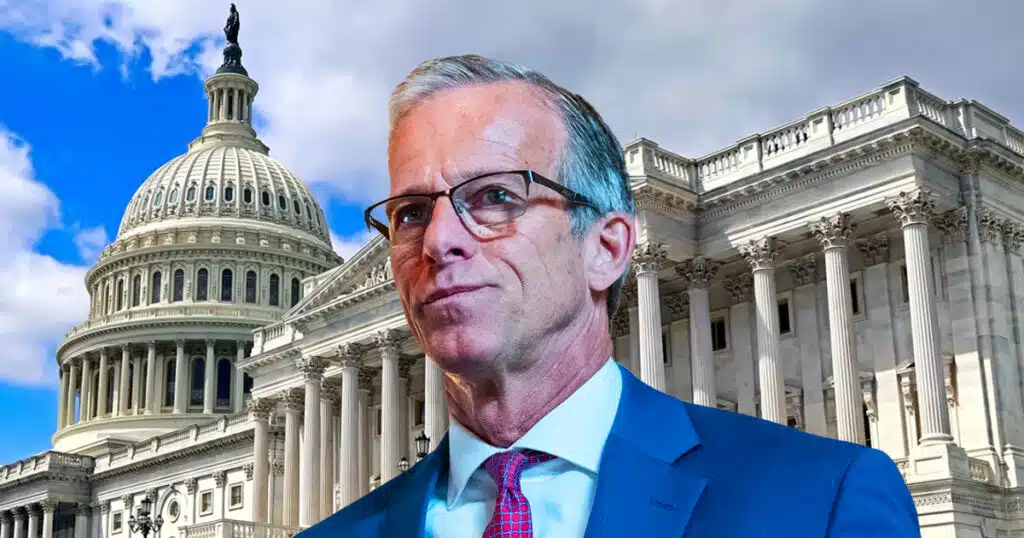
Senate GOP Weighs Rule Change to Sidestep Dems’ Stalling on Trump Nominees
Facing unprecedented delays from Democrats on confirming President Donald Trump’s executive and judicial nominees, Senate Republican leaders want to change the rules to expedite the process.
“President Trump has more than 1,000 senior-level appointments that require Senate confirmation. Under a radical Democratic resistance strategy, the Senate has so far confirmed only 135,” wrote Senate Majority Whip John Barrasso, R-Wyo., in a Wall Street Journal opinion article published Tuesday.
He added, “Confirming even the most routine nominees is now a bitter fight. It is time to change Senate confirmation rules.”
This holdup, he wrote, has left vacancies in “positions that carry out constitutional duties, as well as those tied to U.S. economic and diplomatic priorities.”
Democrats have repeatedly used every procedural method to slow-walk confirmations, not allowing a single civilian nominee to be confirmed by voice vote or by unanimous consent. Civilian nominees are distinct from military nominees, and include judges, ambassadors, and other appointees of the administration.
In the article, Barrasso does entertain the idea of recess appointments—the constitutionally permitted process by which the president can fill vacancies and grant “commissions which shall expire at the end of [Congress’] next session,” when Congress is out on recess.
However, Barrasso, says in his opinion column that recess appointments are “only a temporary fix” and do not “fully break the Democratic blockade.”
The solution for Republicans may be a rule change allowing for the confirmation of several nominees in one vote.
Back in August, Senate Majority Leader John Thune, R-S.D., floated the idea of negotiating with Senate Minority Leader Chuck Schumer, D-N.Y., to allow for mass confirmations.
“I’m hoping, really hoping, that those more pragmatic Democrats will prevail and pave the way for us to work together for the next few days to approve a nominations package,” the South Dakotan said on the Senate floor.
However, negotiations between Schumer and Trump fell through when the New York Democrat reportedly requested funding for Democrat policy priorities to the tune of more than $1 billion in exchange for his cooperation.
Trump called it “political extortion” and told Schumer in no uncertain terms to “GO TO HELL” in a social media post in August, adding that Republicans should “go home and explain to your constituents what bad people the Democrats are.”
Sen. Markwayne Mullin, R-Okla., recently said in an interview with The Hill that Republicans are hoping to move on a rule change quickly.
“The expectation is to move a rule change fairly quick,” he said. “The conference is going to have its input on it. We’ll probably have to massage it some.”
It is unlikely that Republicans can count on the traditional two-thirds majority required to end debate on a rule change.
Therefore, Republicans would probably have to invoke what’s called the “nuclear option,” a multistep process through which the Senate can establish new precedent with a simple majority.
But given the fact that Republicans will soon be seeking Democrats’ support to fund the government for fiscal 2026 and avert a shutdown before the end of the fiscal 2025 on Sept. 30, that would be a gutsy move.


